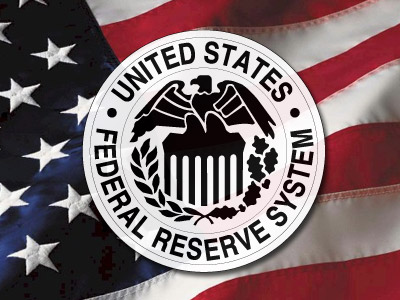
The US Central Bank, commonly known as the Fed, will, after all, have to hike rates one more time this year and at least three times in 2018. These were the views of Boston Fed president and nonvoting official, Eric Rosengren during his interview with the Wall Street Journal.
Considering the data-dependent nature of the FED where inflation and the prevailing labor conditions are important metrics with power to sway policy decision either way, Rosengren was of the view that further interest rate normalization going forward was necessary to contain inflation should unemployment rate continue to fall and inflation surpass the objective target of 2.8% set by the US Federal Reserve.
Given that circumstance occurs, the US central bank will need to “overshoot” and fast-track rate hikes in the coming months. With information registered in the last meeting held in September, the minute of meetings indicate that some Feds officials were worried that “inflation was not expanding as expected” and noted how disinflationary forces were suppressing price pressures.
Recent economic releases from the US has further dampened inflation and raised concerns about the true health of the economy. September’s Consumer Price Index and Consumer Retail Sales data, for example, contracted to 0.1% and 1.6% respectively. As a result, the Fed Fund Futures tracker reduced the probability of a rate hike in December from a 100% to 98% even though US Fund Rates were unaltered in the last meeting.
There was some positivity though. Speaking on Sunday, Chairperson Yellen said that the Federal Open Market Committee foresee a situation where inflation should start expanding and reiterated that rates need to be normalized rates “slowly and gradually” as the economy continues to strengthen.
“My best guess is that these soft readings will not persist, and with the ongoing strengthening of labor markets, I expect inflation to move higher next year”
Even though many analysts view Rosengren comments as lagging especially when mirrored against strict monetary rules championed by John Taylor, who delivered a keynote during the conference, his comments and Yellen’s were still relevant to pessimists who want clear reassurance especially when it comes to the definition of interest rate paths. Usually, monetary policy rules championed by Taylor determine the pace of interest rate hikes after factoring in different factors including consumer or producer’s price index, GDP, and the existing labor conditions to set rates. Under Yellen leadership, monetary policy rules were viewed as “counterproductive” and any hint of possible adoption is often criticized and shot down by officials.
Currently, there are six candidates competing to replace Miss Janet Yellen whose term expires in February 2018. Though she is among the candidates, President Donald Trump has previously stated that he “likes and respects her” but most power brokers conclude that she has slim chances of being re-elected.
Miss Yellen took over the Federal Reserve when the economy was coming to terms with the effects of the credit crisis. She is largely credited for steering the economy back to the line and overseeing monetary policy and fiscal reforms that saw enforcement of strict regulations, slashing of interest rates to record lows and initiation of bond buying exercises called quantitative easing. These policy changes were largely successful and strengthen the current financial framework which was almost collapsing after years of inefficiency and skirting of rules.




Be the first to comment